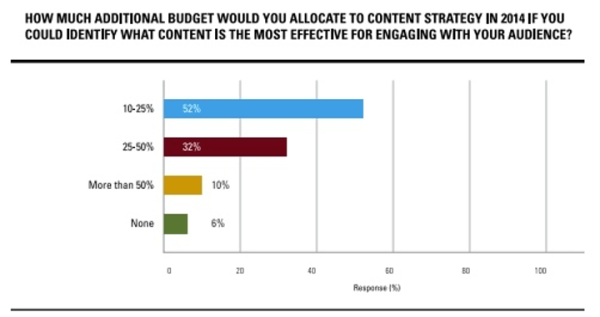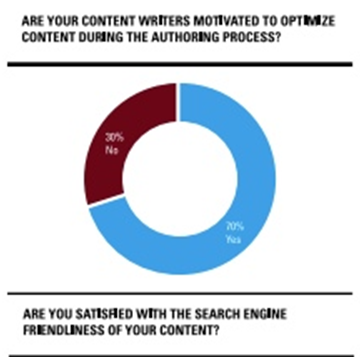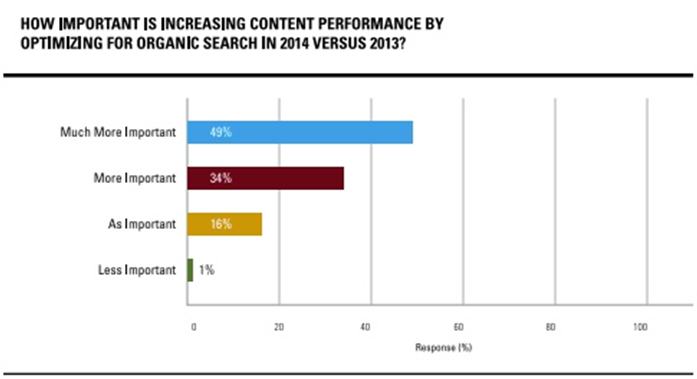Reigning In Content & SEO — The King & Queen Of Online Marketing
Years ago, SEOs proclaimed, “Content is king!” Yet the full potential of content as the catalyst for everything we want to accomplish in SEO was not realized. Even back then, SEOs wanted to measure their efforts. Fast-forward to 2014, and we’re facing more choices in our marketing with more ways to measure than ever. We […]
Years ago, SEOs proclaimed, “Content is king!” Yet the full potential of content as the catalyst for everything we want to accomplish in SEO was not realized. Even back then, SEOs wanted to measure their efforts.
Fast-forward to 2014, and we’re facing more choices in our marketing with more ways to measure than ever. We have multiple ways to reach customers and mountains of data to sort through; and within all this is the need to confirm that what we’re doing is driving business outcomes.
At the top of every SEO’s mind right now is content — and SEOs and brands have a burning need to measure the performance of their content.
SEOs Know Content Is More Important Than Ever
Content is more important than ever to SEOs, and it should be. The experience a brand creates through its content across channels is a key differentiator today.
According to the 2014 Digital Trends report (pdf) by Adobe, brands cited “customer experience” as the most exciting opportunity in 2014 and beyond, looking ahead five years’ time. In that same report, both brands and agencies cited “content marketing” as a top priority for 2014.
But SEOs are still trying to figure out if what they are doing with content is impacting the business in a meaningful way. According to the BrightEdge 2014 Search Marketer Survey, 52 percent of respondents said they would invest at least 10 percent more — up to 25 percent more — in content if they could identify what content was the most engaging to their audience.
Twenty-five percent is a significant amount — especially when we’re talking about brands that are already investing millions in content strategy and marketing.
And consider data coming from the Content Marketing Institute (pdf), which show 10 to 24 percent of the total B2B marketing budget is spent on content marketing.
Connecting Content To ROI
Brands want to invest more in content — just like they want to invest in any marketing strategy du jour — but they want to see the results. Marketing teams have a measurement problem, and they know it. In fact, 78 percent of those surveyed for the BrightEdge Search Marketer report said it’s either “more important” or “much more important” to connect content efforts to ROI in 2014.
Of course, in order to connect content to ROI, you first need the right technology and tools. But kick it up a notch in your planning. Nielsen has an interesting “marketing mix modeling” approach that can help businesses understand if marketing is impacting the business, what is the right amount to spend on marketing, and how they should allocate the spend across the various marketing initiatives.
This model has potential to be applied to various initiatives within web marketing. As Nielsen aptly puts it:
A marketing mix model is really just a recipe for sales: you mix the ingredients — your investment in TV, your investment in radio, and so on — in order to create a certain level of sales, just as you mix flour, eggs, sugar and so on to make a cake.
The following image from that Nielsen report shows “what each ‘ingredient’ — how much money you put into each channel — gets you in incremental sales. The blue ‘base’ area is the business that would be expected if you stopped actively marketing your product for a while, and simply kept shipping it to stores.”
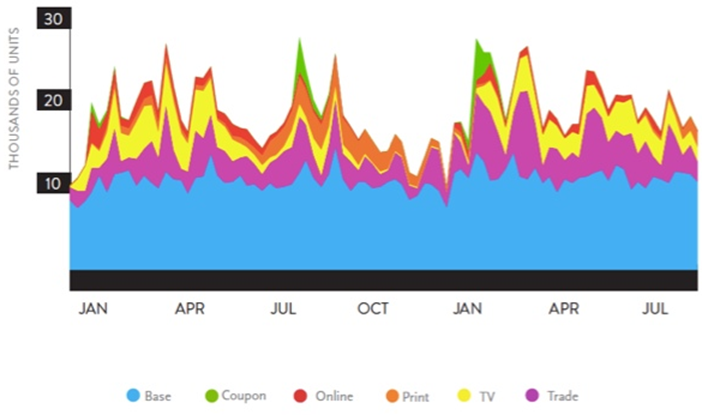
Image: Nielsen’s “What’s Next: The Best Of Both Worlds—Integrating Online Data Into Marketing Mix Models“
The Disconnect Between Content Marketing & SEO
Web marketing budgets are often allocated to specific initiatives. Today, the lines are blurred between initiatives like content marketing and SEO; so, it’s no surprise that brands are undecided when it comes to allocating budgets if they view the two as distinctly separate.
SEOs and content marketers have the same goals, but the separation of the two as stand-alone disciplines has left some businesses with disjointed marketing efforts. The term “content marketing” in and of itself speaks to the end goal of SEO: to get the content in front of the people to whom it matters.
So, why then, are companies compartmentalizing skills into siloed teams?
Even if teams are divided by creative versus analytical, collaboration and cross-training should exist in order for marketing to succeed.

Image courtesy of BrightEdge
Let’s take the simple concept of optimizing content and creating Meta information as an example of where things get fuzzy. This task does not need to be solely designated to technically-minded SEOs anymore. In fact, according to the 2014 Search Marketer survey data, the majority of content creators are ready and able to optimize content while they create it.
And, 48 percent say they do. Which indicates those particular brands understand that optimization today is one part “natural” (occurs as content creators write) and one part analytical (making sure the content is capitalizing on all the optimization opportunities).
And, while 83 percent of SEOs surveyed for BrightEdge’s 2014 Search Marketer report stated that increasing content performance by optimizing for organic search in 2014 is “much more important” or “more important” versus 2013, the question is: who’s job is it?
This is on the minds of professionals and businesses everywhere. In fact, 26 percent of B2B content marketers said there was a lack of integration across marketing, according to the B2B Content Marketing 2014 report by CMI referenced earlier.
Make Content Creation & SEO A Concerted Effort
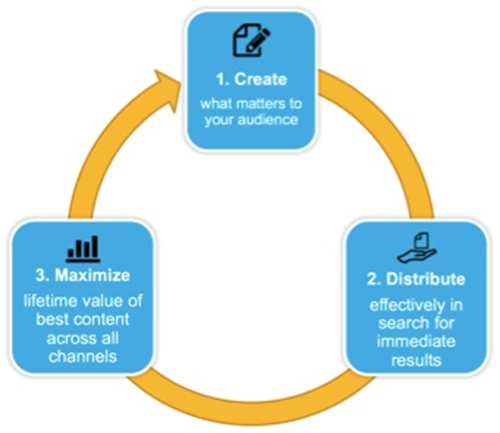
Each role has a stake, which means each role has something unique to offer in terms of how it should be done.
In order to make this work, the team must agree that:
- SEO Is The Best Channel To Understand Demand. You can leverage a wealth of internet-wide search data to understand what topics matter to your target audience. You can also find out what topics the competition is targeting and how.
- Leverage Organic Search As A Key Content Marketing Channel. Allow content creators to fuel the discussion about how the data can be worked into the brand’s communications plan. Empower the writers to learn how to optimize the content as it’s being created and before it’s published.
- Monitor Closely After Publishing & Maximize Content Lifetime Value. Both SEOs and content creators can lend insight into how the content is performing now and later on. Of course, you need the right tools; but you also need an attention to detail to know if and when the content can be updated to reflect new information months down the road, for example.
3 Tips For Creating Successful Content
Content marketing is an all-encompassing term, and organic search visibility for web content is a part of it. When teams come together to figure out how they will make content succeed, they need to consider three things:
- The content’s goals, supported by the tools and technology that can track and attribute business results to that content.
- The definition of roles and skill sets on the marketing team, along with discovering where overlap and cross-training opportunities exist.
- Collaboration between roles for the life cycle of the content, where analytical and creative minds come together to maximize business value.
After executing a well-planned organic search content strategy, a budget for content will begin to present itself based on what you know is working.
(Stock image via Shutterstock.com. Used under license.)
Contributing authors are invited to create content for Search Engine Land and are chosen for their expertise and contribution to the search community. Our contributors work under the oversight of the editorial staff and contributions are checked for quality and relevance to our readers. The opinions they express are their own.
Related stories

